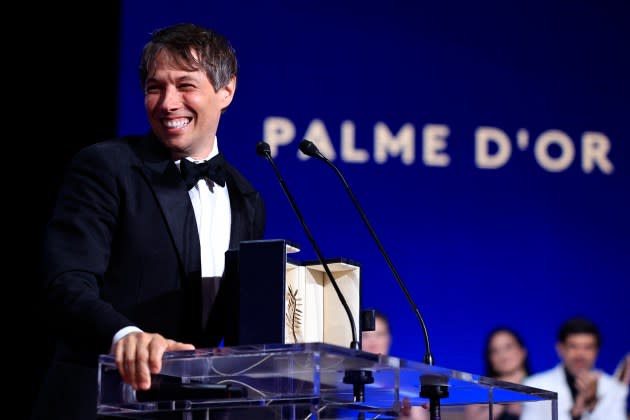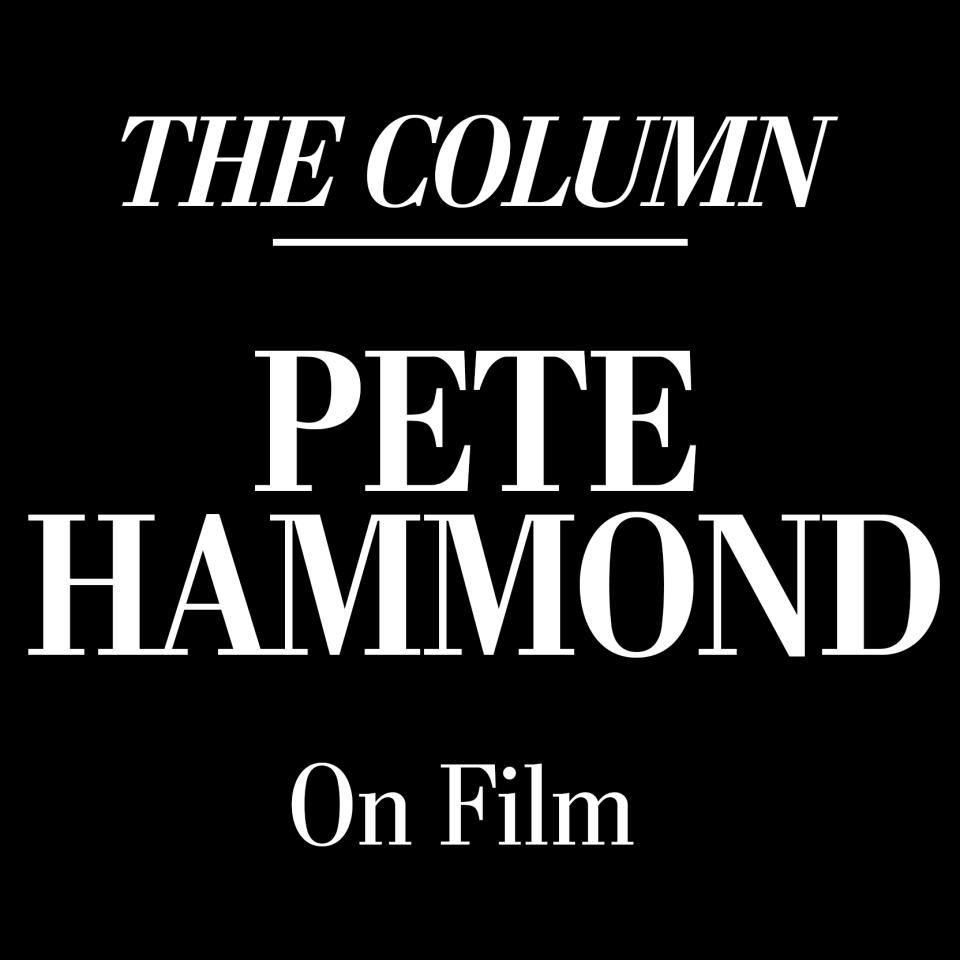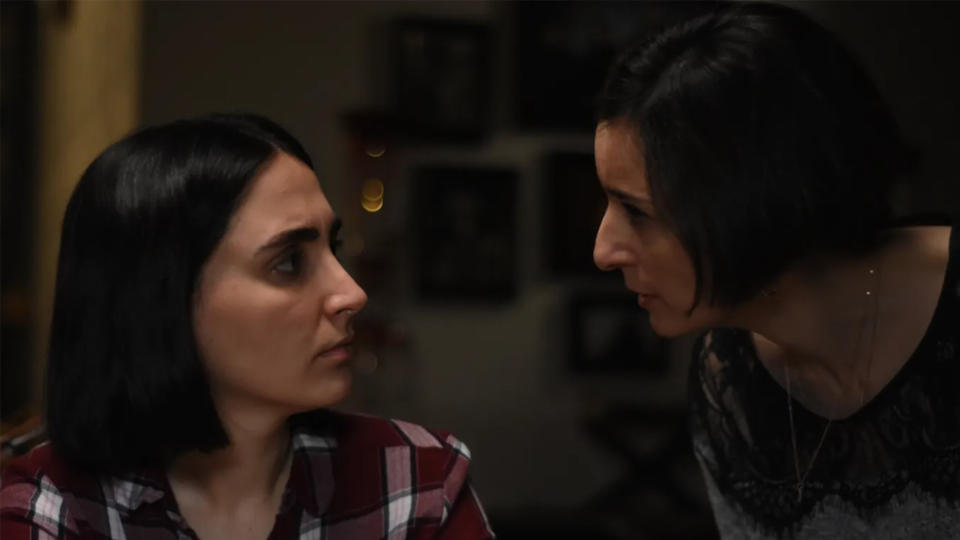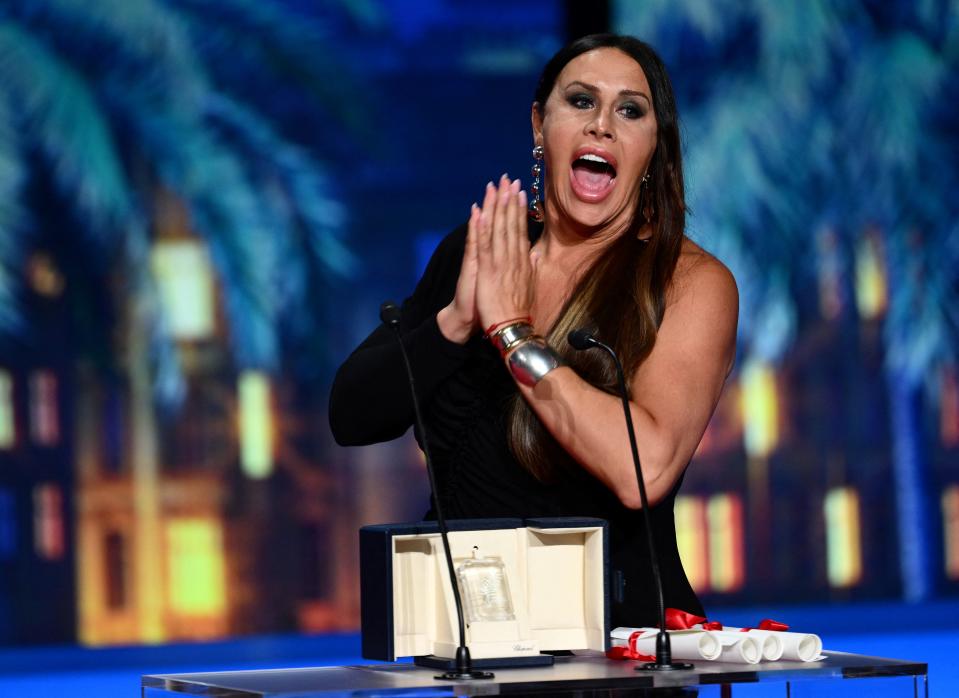Cannes Film Festival Winners Analysis: Comedy, Humanity Takes Jury’s Heart Over Politics


Often, the juries at the Cannes Film Festival will try to make a political statement in their choices for the winners of the world’s most famous film festival. Not this year. At least, not in the way they might have.
I rather thought that director Mohammad Rasoulof would take the Palme d’Or for his stirring The Seed Of The Sacred Fig. It deals with the oppressive regime in Iran and the crisis in one family, where the daughters rise up to protest against the wishes of their father, a judge handing out death sentences for those who make their voices heard.
More from Deadline
Plus, the back story of Rasoulof’s own daring escape from his home country after making this movie in secrecy and also being handed an eight-year prison sentence, is also a strong one.
He made his way to Cannes, where his film deservedly received a rapturous welcome yesterday on the festival’s last night of screenings. Alas, the jury, headed by Greta Gerwig, handed the film only a “Special” Jury Prize, not even one of the major awards given. And though it gave Rasoulof a world platform to talk about the many reasons this film was necessary in today’s tinderbox environment in his country and elsewhere, a Palme d’Or for a film whose lead actors still can’t even leave the country would have been a major statement.

This special award was really as close as anything political that this jury got, even though films they completely ignored, such as the Donald Trump origins movie, The Apprentice (which Trump and his lawyers have a cease and desist complaint against); Paul Schrader’s Oh Canada, which deals in part with resistance against an unjust war; Kiril Serebbrennikov’s Luminov-The Ballad, about a controversial Russian activist, with a sensational lead performance by Ben Whishaw; and even Francis Ford Coppola’s divisive Megalopolis, which contains some of the legendary director’s urgent concerns about the state of the world, were all completely shut out.
Jacques Audiard’s Emilia Perez, just picked up by Netflix, did win two awards, including the shared Best Actress prize for its four actresses, including trans actor Karla Sofia Gascon, as well as the Jury Prize (third place) for Audiard himself, a rare case of a film taking two awards (they are instructed to spread them out). It has strong compassion for the right to be who you are, and that includes the right to change gender, something extreme right-wingers will certainly find objection with for this riveting and brilliant film.

But the top honor, Palme d’Or, is a raucous wildly entertaining comedy, Anora, from director Sean Baker, that blew the roof off the Grande Lumiere, and represents yet another Palme d’Or win for NEON, which seems to triumph every single year (they will also be releasing The Seed Of The Sacred Fig). It is a hilarious, rollicking movie with superb performances by the astonishing Mikey Madison in the title role, Mark Eydelshteyn, a real find, Yura Borisov, and Karren Karagulian.
Its win resembles the Palme d’Or for Triangle Of Sadness, and it bodes well for its Oscar chances, since the latter film went on to three major nominations, including Best Picture, and was just as outrageous as this one (more on this year’s potential Oscar connection with Cannes will be coming soon in another column). However, the most “political” this movie got would be Baker’s plea for better treatment of sex workers.

The Grand Prix (second place) went to India’s first appearance in competition in 30 years, with the heartfelt All We Imagine As Light from director Payal Kapadia. It is about a number of women as they relate to the city of Mumbai in which they go about their daily lives. Definitely a mood piece and slow moving, it still seems hard to resist its beauty and comment on humanity, and people just getting by day by day.
The acting prizes including the four-way “harmony of sisterhood” award to Emilia Perez’s Zoe Saldanan, Karla Sofia Gascon, Selena Gomez, and Adriana Paz, was a nice compromise, since they are all great in this Spanish language film from a French director. It’s about a cartel leader who decides to change his life and his sex and find a different path.
For Best Actor, I have to say Jesse Plemons is always very fine. But the film for which he was honored, Yorgas Lathimos’ Kinds Of Kindness, is flawed and received a mixed reception at best. I am sorry that The Apprentice’s Donald Trump of Sebastian Stan and Roy Cohn of Jeremy Strong, plus Limonov’s Ben Whishaw, were ignored here. But it was probably because of the political message a win for them might send, my guess at least. They were more deserving.
The screenplay award to French director Coralie Forgeat for the wild English language body horror movie comedy, The Substance, was well-deserved, another great example of a brilliantly written, directed, and performed satire, for which Demi Moore would have been a fine Best Actress winner as well. It has much to say about our youthful obsession and body image taken to the extreme limits. I would call it Ozempic: The Movie. It’s wild and it has put Moore back on the map.

I missed Grand Tour, the Burmese period fantasy story that somehow won Miguel Gomes the Director prize. Its overall reception had been kinda meh, so its win here was a bit of a surprise. But you never know with juries.
Congratulations to all the winners, and to those who didn’t get the call. I saw more than 30 movies in Cannes, and I have to say, it was a very good festival again this year. Whether these films go on to the same kind of acclaim as last year’s crop, where three Official Selection movies went on the Best Picture Oscar nominations (and some wins) remains to be seen. It is a tall order, but I will have more to say on that in an upcoming Oscar/Cannes wrap soon.
Palme d’Or winner Sean Baker’s (‘Anora’) acceptance speech #Cannes2024 pic.twitter.com/FrfJ2rceT9
— Deadline Hollywood (@DEADLINE) May 25, 2024
Best of Deadline
2024-25 Awards Season Calendar - Dates For Oscars, Tonys, Guilds, BAFTAs, Spirits & More
2024 Premiere Dates For New & Returning Series On Broadcast, Cable & Streaming
Hollywood & Media Deaths In 2024: Photo Gallery & Obituaries
Sign up for Deadline's Newsletter. For the latest news, follow us on Facebook, Twitter, and Instagram.


